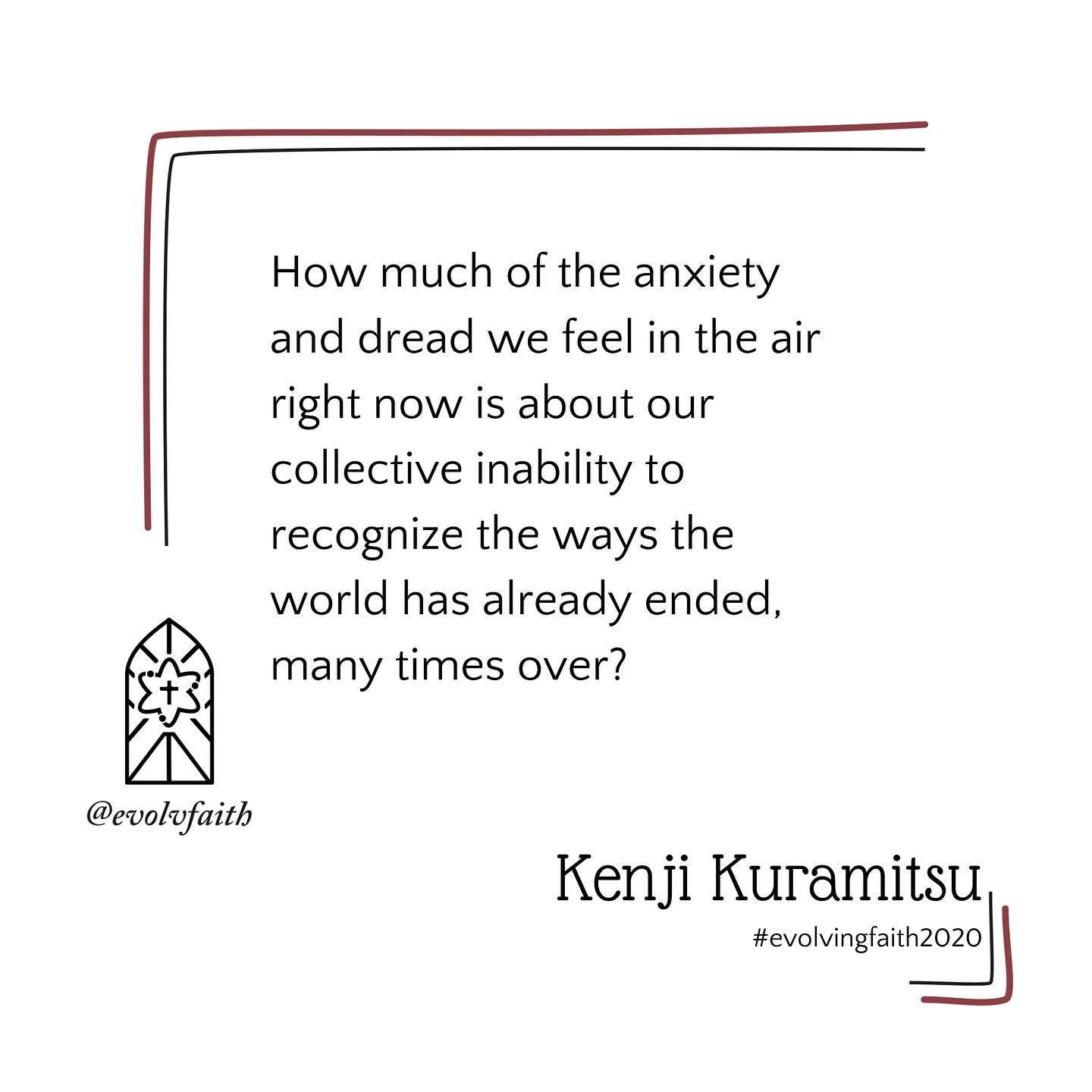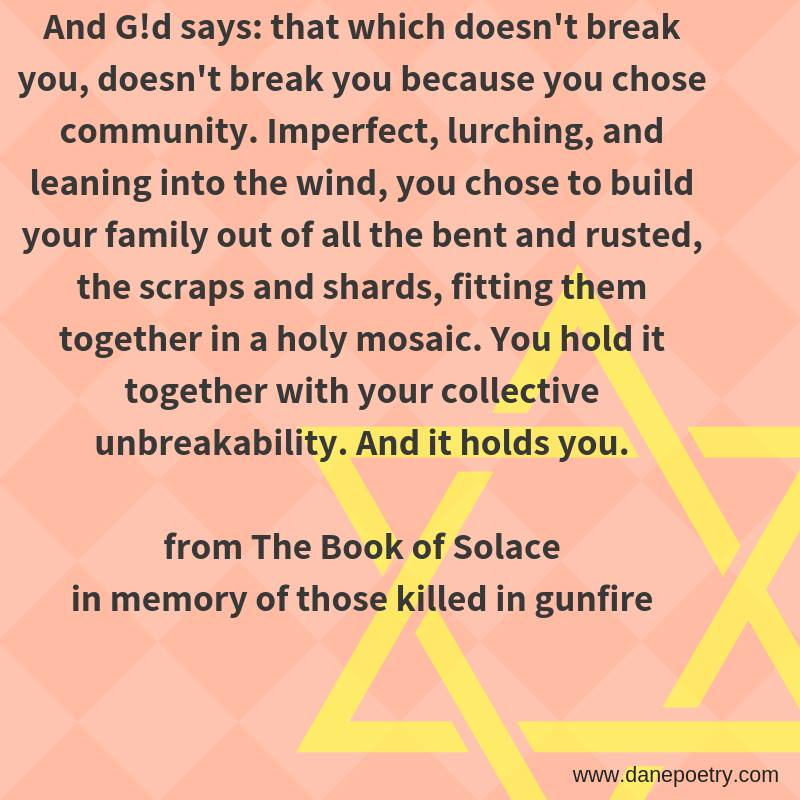Dear Friends,
If you were to ask me what my favorite song is, I would – after quibbling for a bit – on REM’s “It’s The End Of The World As We Know It.” An all important throwback to my teenage camp days, I find it endlessly delightful to rattle off the long, wordy lines, and it reminds me of many of my closest friends. My love for the track, which was released before I was even born, isn’t all sentimentality, though. I love it because it’s not actually a song about the end of the world. Instead, it’s about turning points, times when the world was transformed. And those are far more common than we tend to think or want to believe.
As Kenji Kuramitsu reassured us in a meditation at the Evolving Faith conference this past fall, the world ends time and time again. And every time it happens, we’re frightened. But what if we let go of that fear?
Because with endings come new beginnings.
When I wrote to you all last week, we were standing on the edge of one of those endings, and that new beginning isn’t yet in sight. There are those trying to usher in those new times, yes, but it will take so much more. It will take hard work by so many people. That’s not saying something unusual, though. That is how these moments work.
From where we stand right now, here in the middle of January, all of the formation specialists I know are hard at work planning for Lent and Easter. Even if we include all of the lead up the disciples had to Good Friday, though, a preparation we pack into the 40 days (plus Sundays) of Lent, we can be sure that the crucifixion still felt sudden to them. And even though Christ rose in just three days, for so long, that return was a mystery. They could not recognize him. And even when they did, they knew he would leave them again. Where was the new beginning in that? The disciples had to create it.
Of course, other Bible stories lend themselves to the same readings of world endings and new beginning, from Eden to the Flood to Saul’s transformation into Paul and so many stories in between - it might be a good time read any of those, alone or as a family, and reflect on them. And just in my brief lifetime, I have witnessed more than one moment in which the world seemed to end and had to be reinvented, not including how that happens again and again in our personal lives. Every time, the new world is the result of communities, big and small, working together.
Another thing I know about this these endings and beginning is that, whatever happens to the world or to us, we are intimately known by the God who created us. This week’s lectionary includes my very favorite reading from the Psalms - Psalm 139:
“For you created my inmost being;
you knit me together in my mother’s womb.”
We do not cease to be God’s creation, even in those moments of great uncertainty. We remain who we were in the beginning, when first we came into being within God’s knowingness. We may grow and change, but God knows our innermost, truest selves.
Knowing all this, this week, I invite you to a number of resources for this new creation:
This coming Monday is Martin Luther King Day and Godly Play has released two new stories of modern day saints - MLK and Bishop Barbara Harris. You can watch their presentation of the MLK story here:
A few months ago, I shared the liturgical poetry collection "Social Justice Warrior’s Guide to the High Holy Days.” Now, as the moment calls for, I offer you “The Book of Solace.” This collection memorializes and uplifts, recognizing the immense power of community in a world that demands remaking -
After last week’s events, I settled into the sacred language of lament. Lament has gotten a lot of attention these last few months, but that’s because it’s powerful and it works. It is a form of prayer and mourning and devotion. It is an acknowledgement of how much we treasure the world and sense its brokenness. And in that spirit, I offer you Lament Songs by The Porter’s Gate -
I love this coloring sheet from Ministry Ark, which goes with this week’s Psalm. May we all see how we are fearfully and wonderfully made.
Because you are my holy collective,
Bird






As always thank you!, David Webb.